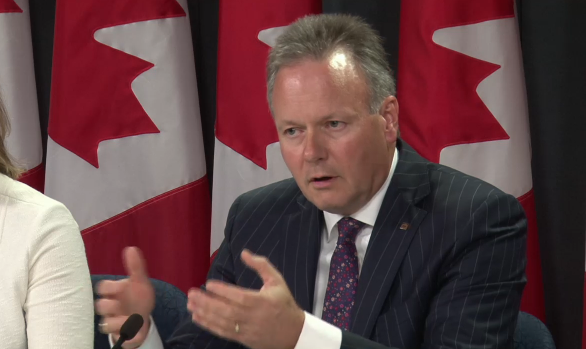Times like these can be fatal to a central banker's reputation

Central banking isn't tough in good times but it's nearly impossible to survive when trouble hits. That's why the first job of a central banker is to avoid tough times and head-off problems before they arise.
But economies and markets make fools out of the best men and women. Problems -- if not crisis -- are inevitable.
So Stephen Poloz has the first mini-crisis of his term at the Bank of Canada. Mortgage lender Home Capital is bleeding deposits and was forced to take an emergency loan at rates above 20%.
On the weekend, Poloz finally weighed in. The challenge is to help maintain confidence in the financial system, while acknowledging the issues.
"We'd be looking for signs that there are problems with the [financial] system as opposed to preoccupying ourselves with individual institutions," he told the Globe & Mail. "The question would be: What caused this? Is it something unique to the institution itself, or is it something in the system? ... I think this situation [Home Capital] is pretty clear on that; it's idiosyncratic."
Poloz also weighed in on housing more generally and repeated that price growth was unsustainable.
Unsustainable, he said, "does not mean we're going to get a major retracement in prices. ... It just means that they can't continue to go up at these rates. Often, when you have a truly unsustainable housing market, you will see very rapid price increases [and] very rapid credit growth. ... But we don't see that in the credit side, so I do think a significant amount of this that is fundamental, but layered on top, is a speculative element."
His worry is that in a tough recession, Canadians wouldn't be able to service their home loans. As for the system, he said that mortgage rules and bank capital leaves him confident.
"We have a very resilient system," he said.
He better hope so, otherwise a line like 'Home Capital is contained' will be written in his obituary.